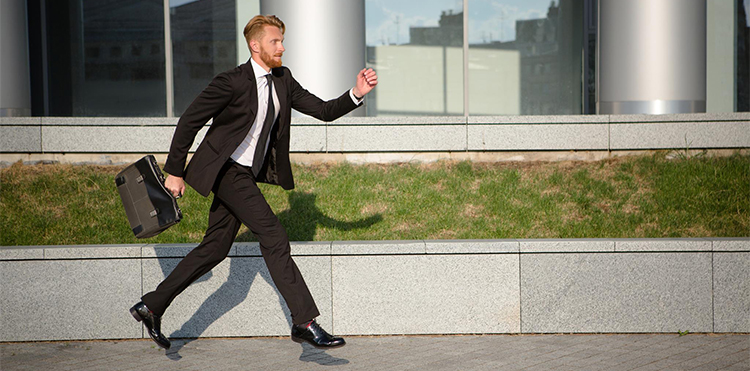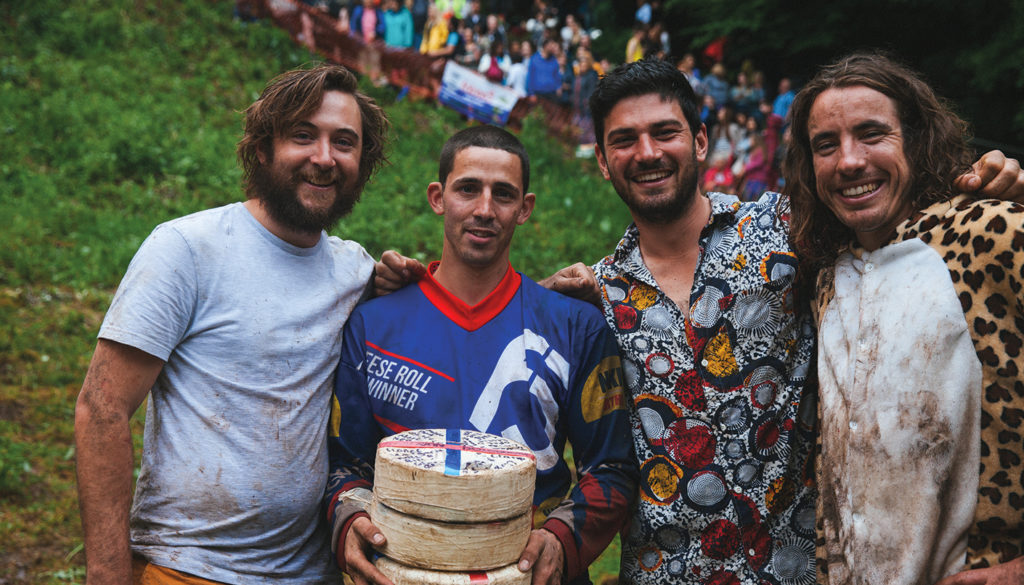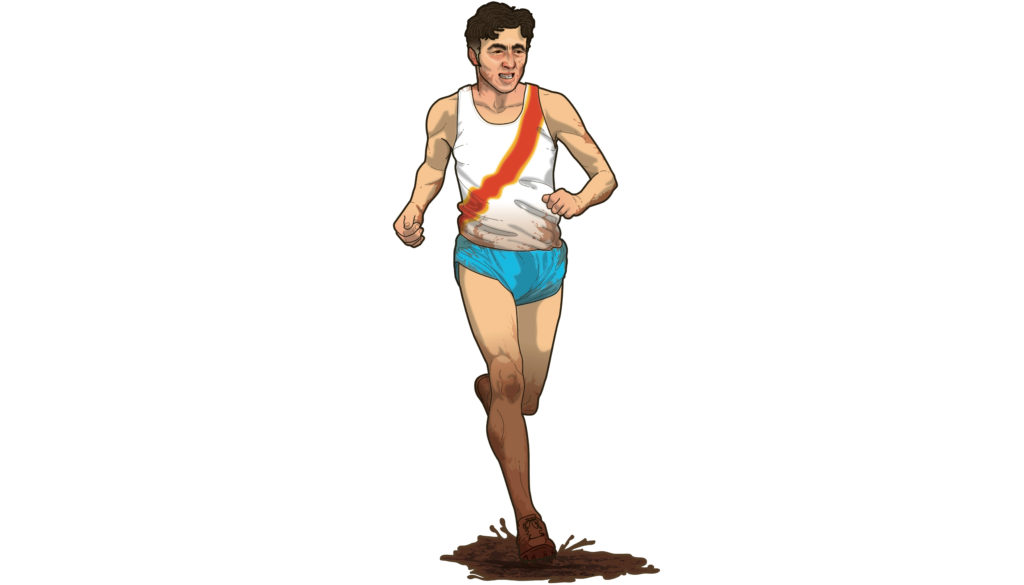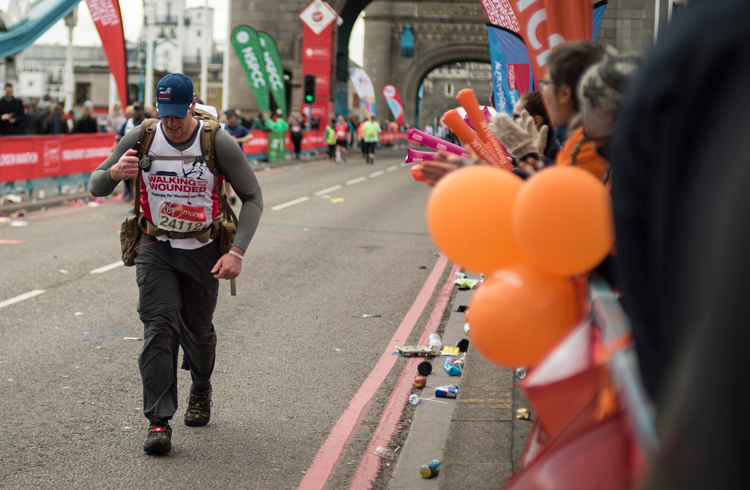
“You’re going to do what?”
This is a phrase I would soon get used to hearing, over and over again.
In mid-2015, I’d read about an aid worker who had set a new world record for the fastest marathon carrying an 80lb. backpack. I immediately thought: “If he could do that, then maybe I could do it – and perhaps with an even heavier weight?”
Within a few days, I decided that I would aim to set a new world record for carrying a 100lb (45.36kg) backpack in the London Marathon.
Training
I immediately set about building my leg and core strength to carry the weight. To do this, I would have to eat twice my usual intake of calories. Alongside a weekly set routine of squats, deadlifts and lunges – I would spend up to five hours every Sunday walking around Guildford with the huge bag (while people shot me odd looks).
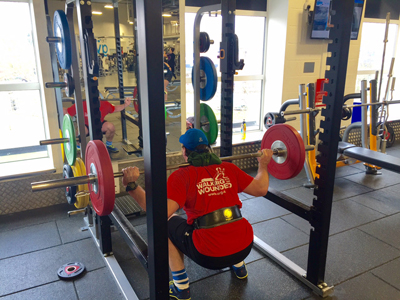
3 months later – things weren’t going as well as planned. I was getting bored of the lack of variation and decide to throw in something more engaging.
Setbacks
Alongside mountain biking, I tried Brazilian Jujitsu (for core strength). However in my first sparring session, I got caught in an arm lock and tore my shoulder muscle – now what?
The next day, I couldn’t even lift my arm. Picking up the backpack, I was confronted with searing pain throughout my entire shoulder.
Sad and dejected, the idea of become a world record holder sunk from view.
Getting back up
But at rock bottom, I learned that I could endure setbacks. After the initial feelings of foolishness subsided, my determination picked up. After all, I’d trained through injury before and got out the other side. Seven years earlier, I tore my anterior cruciate ligament (ACL) and took a risk to go through 15 months of Royal Marines Commando training five months afterwards.
I had to get over this wall. By now, I’d planned to move to the full weight (100lbs.) Now at seven weeks out, I put the last of the weight discs into my strained backpack.
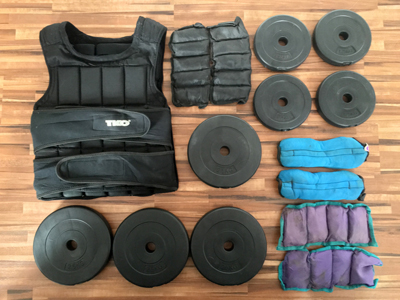
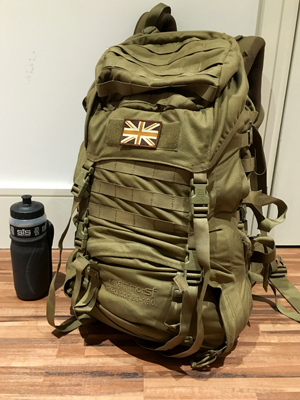
Something unexpected happens
Reading about mindfulness, I started to apply some of the techniques to my training sessions. Using breathing techniques, I found I could control the intensity of the pain from my blisters, shoulders and joints and solely focus on the walking. In fact, it was so powerful – I stopped listening to any music altogether. Time during training sessions would disappear and I found myself becoming mentally calmer.
Come race day, I could barely eat the breakfast of porridge, yoghurt and bananas. My heart would race just standing around and I felt sick as I tried to eat. But now – any time I started to feel the anxiety, I would practice my breath counting and regain control of my body.
Learning
In striving to reach my goal, I encountered setbacks that almost ended it. I felt knocked down, dejected and couldn’t carry on. In life, you need setbacks to understand how you react, and what you’re really made of. If you embrace defeat so readily, it’ll become a habit and you’ll take that route whenever you hit an obstacle.
It is also the people that you surround yourself with that increase success; they pick you up, dust you down and set you on your way when things get tough.
While I pushed myself through the physical training sessions, it was the sum total of the people around me – the encouragement to train, eat well and keep going – that was the difference between stopping at the 30K point with severe blister pain, and making it into the record books.
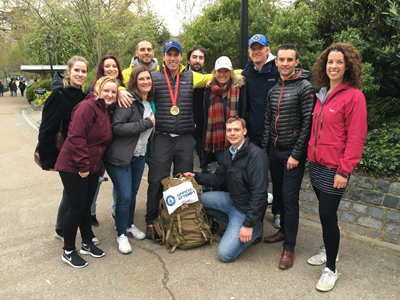
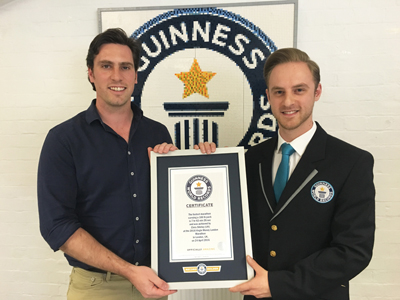
Chris Shirley is a former Royal Marines Commando and now freelance business development specialist based in London. You can follow him on Twitter (@ChrisShirley3) and Instragram (Chris_Shirley3)




